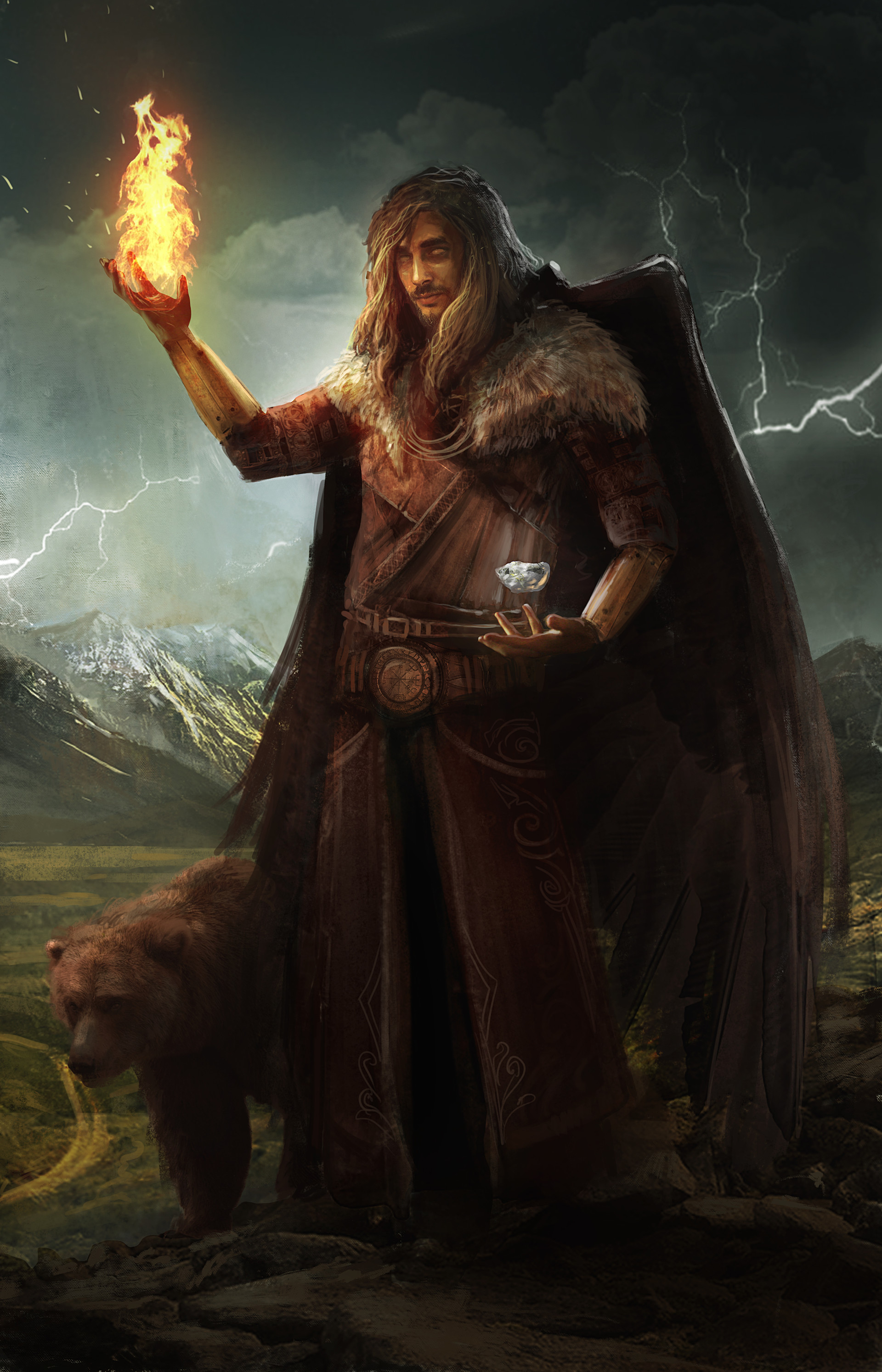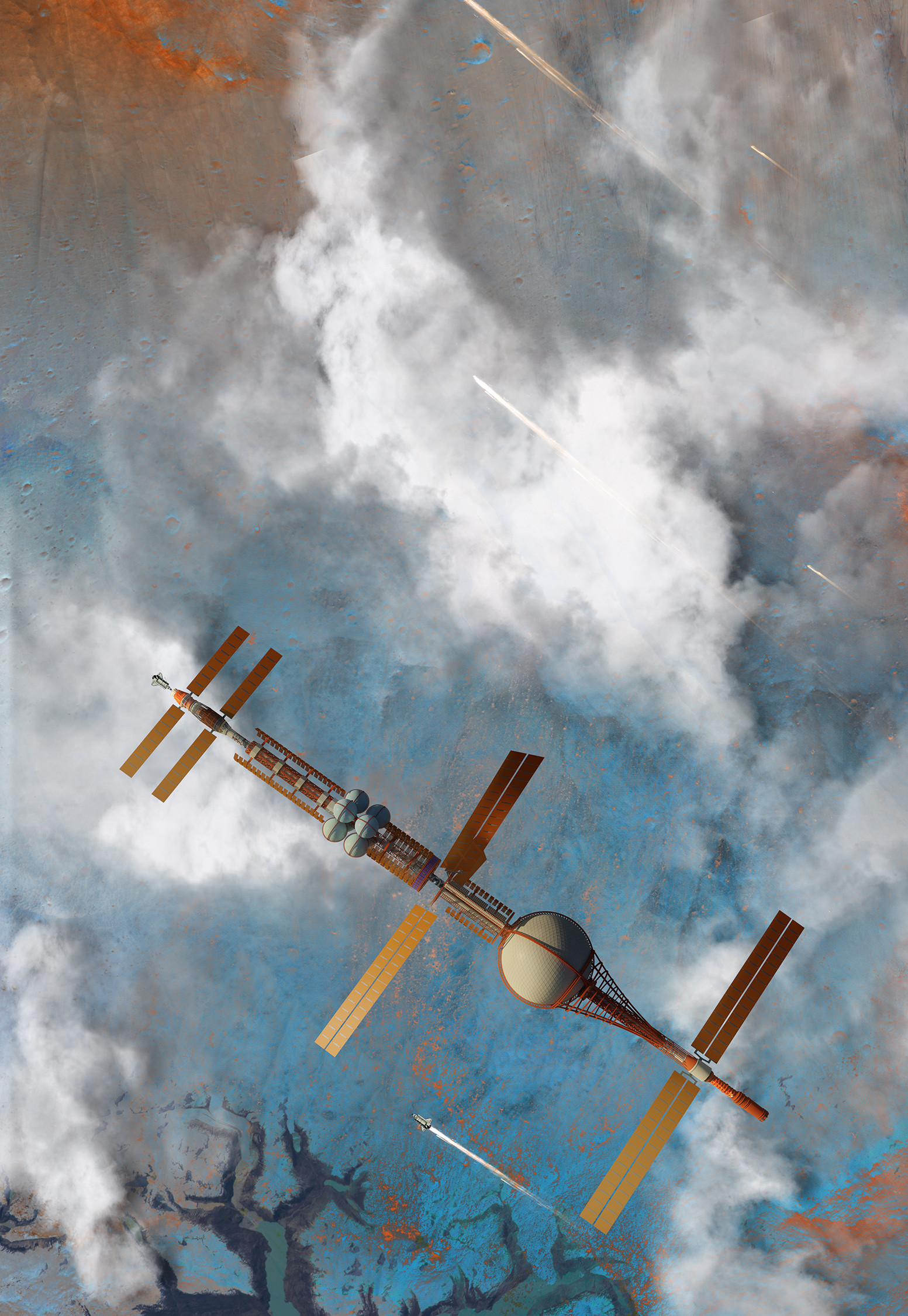Magic has been a staple of RPGs since the beginning of the hobby - the traditional grouping of adventurers consists of a fighter, cleric, magic-user and (depending on how die-hard a purist you are) a thief. Magic-users control powers beyond mortal ken, providing flexibility in a huge number of situations, and their influence and presence is noted in a huge variety of RPGs (even those with a non-fantasy focus). However I often have an issue with how magic itself is portrayed, particularly with regard to where it originates and the implications its origin has for the wider setting.
In short, I want magic to provide great power and utility but with an element of mortal risk to the caster and their compatriots.
 |
| Credit, Iman Awan |
In stock D&D or Pathfinder for example, arcane magic is just sort of... there. You have the usual Vancian fire-and-forget mechanics but magic is presented as a dry, formulaic thing where a wizard sits down, picks their spells out of a book and then uses them throughout the day. I don't get any sense of where that magic comes from or what spells are. Moving away from vanilla wizards gets you into sorcerer and warlock territory, whereby characters marshal magic through force of will or pacts with otherworldly beings. However magic remains easy to use and virtually without risk, save for some spell side effects. This second point is what turns me off from the 'magic' (under Clarke's Third Law, at least) in Monte Cook's Numenera - while its origin is awesome (swarms of nanites left over from ancient civilisations gone haywire) its use still fails to raise the stakes.
Compare this with Kevin Crawford's Stars Without Number (which is excellent, by the way). Psychic characters (technically not magic but whatever) are marked by a connection to a subspace realm of metadimensional energy that they are able to channel to manifest their powers. Most psychics die or go mad because the energies they channel fry their brains - only those who undergo rigorous training to channel the destructive energies through more resilient parts of their brains survive. Psychics can 'torch' their powers and go beyond their normal limits and in doing so they risk terrible and permanent damage. This fits seamlessly into the world - metadimensional space is used for faster than light travel and incredibly advanced ancient technology - and offers incredible powers to its users while also being a great hazard.
Recently I've fallen in love with Arnold K.'s GLOG, particularly the spellcasting rules. Each magic template you take nets you one magic dice which are rolled when you use one of your spells. Most spell effects scale with the number of dice used or the sum of their results, which gives you an incentive to pour more dice into a certain spell. However you only retain the dice on a 1-3 and regain lost dice at the start of the next day, and if you roll doubles or triples there are some horrid things that can happen to your character. So you have the balancing act of wanting to power up your spells while avoiding the chance of fucking things up. The in-GLOGiverse depiction of spells as somewhat unpredictable spiritual entities that a wizard has to draw into and rear inside their own brain provides a wonderful bit of worldbuilding that exactly describes why unleashing higher levels of power from the semi-enslaved extradimensional creatures in your brain-cage could cause some mishaps.
In my own Egradus setting I've stuck with the alternative rules for Lamentations of the Flame Princess found in the Vaginas Are Magic supplement - spells have no level and a magic-user has a number of preparation slots equal to their level. They can cast spells once these have been exhausted but this carries the risk of terrible side effects. Magic in Egradus is drawn from the Abyss - an entropic micro-universe that was guided into contact with the material plane by the malign eldritch entities within. The reality of the material plane was broken by contact with such a vastly entropic force and magic-users tap into the swirling chaotic energies released by the Abyss when it latched on like a tick. Thus magic-users can channel incredible power, but if they push themselves beyond their limits they run the risk of mutation, daemonic attention and worse.
 |
| Credit, Nikolay Moskvin |
With this in mind I've thought up some possible origins and hazards of using arcane magic. Feel free to adapt them or suggest your own! I've kept them light on concrete mechanics but there should be enough to build from.
1. Dreams of a Dead God
Origin: The corpse of a deity lies long dead deep beneath the earth (or maybe it is the earth) but their essence lives on and permeates everything. Fragments of their dreams and soul touch and interact with the mortal world. Mages bend these to their will through meditation and use them to fuel their magical powers. Higher levels means a greater capacity to absorb the essence of a dead god.
Hazard: What is dead does not die. A mage that oversteps their bounds runs the risk of being drawn into living nightmares or having their personality gradually eroded by the ever so slowly decaying thoughts and memories of the divine.
2. The Soul (inspired by Chris at Journey into the Weird)
Origin: The soul is of a different substance to the body, one of power and limitless potential. The energy contained within a soul represents an incredible source of power and mages are able to control souls through arcane rituals using body parts, bones or hairs. The living have a chance to resist these rituals but the disembodied souls of the dead are powerless to resist being bound to a wizard's will. Higher levels means a greater ability to bind residual spirits and souls.
Hazard: The souls of the dead desire their freedom. A mage that loses control of a soul is often possessed, or finds that their own soul is viciously excoriated.
3. Intoxicant Delusions
Origin: Certain plants, fungi or even animals contain substances that shift a person's perception of the world to the astral plane and allow them to see the currents of energy that run through it. A wizard who imbibes a sufficient amount of these substances finds themselves able to shape and channel this power into their minds to be released in a variety of magical effects. Higher levels means a greater capacity for bingeing upon these substances and a greater ability to control the astral power they give access to.
Hazard: Overdoses are bad news for all involved. A person's metabolism can only take so much before weird mutations, diseases and spiritual afflictions start to crop up. Severe cases can lead to a person being phase-shifted into astral space, which isn't all nice.
4. Mathematical Perfection
Origin: Reality is an ordered construct. Every facet of the universe is detailed in endless formulae and equations. Wizards are master mathematicians who pore over and decipher the immaterial tapestry upon which reality is embroidered. Mastery of these elemental formulae allows them to manipulate and alter reality, whether that consists of firing bolts of energy or rendering themselves invisible. Higher levels means a better recall of the formulae in their notes and a deeper understanding of the underpinnings of creation.
Hazard: Don't recite a decimal point in the wrong place or the spell you intended to disembowel your enemy with might instead remove your arm, or merge you with the wall, or turn your cell membranes into lego.

No comments:
Post a Comment